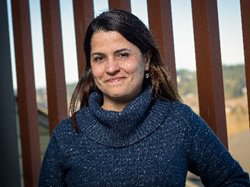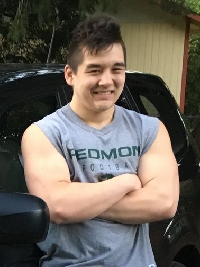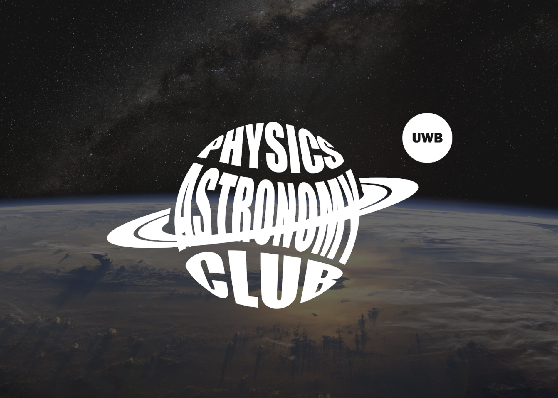Deep engagement during the coronavirus pandemic and efforts to recruit students into the physics program are only two of the initiatives that earned the University of Washington Bothell’s Physics & Astronomy Club recognition as an Outstanding Chapter for 2021-22 by the Society of Physics Students’ National Office.
This is the highest level of distinction the society — an organization of the American Institute of Physics — bestows, with less than 10% of the nearly 850 chapters across the United States receiving the honor.
Criteria include the chapter’s involvement in SPS meetings and programs, outreach to K-12 students and community service. According to the judges, the UW Bothell chapter excelled in all areas.
Building community online
In-person events were allowed during the second year of the pandemic, but the club, which is open to students from all programs and majors, decided to continue meeting online to address various health concerns.

This accommodation also required club members to come up with new ideas to keep people actively engaged. “The officers were determined to keep the club going and to find ways to make activities accessible to everyone,” said Dr. Paola Rodríguez Hidalgo, assistant professor in the School of STEM and the club’s 2021-22 adviser.
One online meeting, for example, was turned into a game night where members would debate based on a variety of different prompts. “It was a great icebreaker,” said Nick Kaneko, a senior in Physics and the current club president. “We included a lot of physics prompts, but we also tried get more personable. One asked members how they define success, and the answers were far-ranging and really interesting.
“These informal discussions really built community and relationships between members.”
Interactive and informative

Holding some club meetings — such as a speed meet-and-greet with faculty — was also key to helping members make connections. Not only could participants get acquainted with their professors, but they could get advice on setting goals for different career paths and learn about applying to doctorate programs and writing personal statements.
“Students had the opportunity to make the experience whatever they needed it to be,” Kaneko said. “It was all about each student’s professional and personal goals and how to pursue them.
“I know for me I wanted guidance on where to go with my career as you can go so many different directions with physics,” he added. “I asked Dr. Joey Key, associate professor in the School of STEM, how to take my understanding of physics to the next level. Her answers helped a lot and gave me some great options.
Other events hosted by the club included alumni presenting on their paths from college to career and talks on biophysics and astrophotography.
Increasing diversity in the field
“The officers worked hard to provide a variety of interesting and innovative programs to keep members active and involved,” Rodríguez Hidalgo said, such as activities with the Inclusion, Diversity and Equity Alliance of the American Physical Society.
According to Rodríguez Hidalgo, physics remains one of the least diverse populations of students in the United States. The alliance is a support network of physics departments, laboratories and observatories that want to identify and enact strategies to transform the culture of physics. UW Bothell is one of only about 100 institutions nationally accepted into the APS-IDEA.
Club members met monthly to work on projects to improve the diversity and climate of the physics community on campus. To encourage students at local high schools and community colleges to consider studying physis, they gave presentations about the research opportunities that are available to undergraduates at UW Bothell. They also helped analyze data on demographics within the Physics program, including current and former students, to create benchmarks that can be used to measure the success of DEI initiatives.
Continued engagement
Since the club received the award in December, Kaneko reports an increase in attendance at meetings and events, a sign that the chapter is continuing to grow and develop.
“We are planning for future work and activities,” he said, “with the goal of continued community engagement and of academic and career advancement for students.”
Current plans include more interactive game nights and field trips, including a star gazing event for students as well as faculty and staff. The club plans to bring back the popular alumni presentation on moving from college to career. And, to further incorporate DEI into club practices, officers have invited Dr. Charity Lovitt, associate teaching professor in the School of STEM, to speak at an upcoming event.
“While the award was for past work,” Kaneko said, “we want to continue the momentum and keep our community engaged — all while learning and having fun.”




